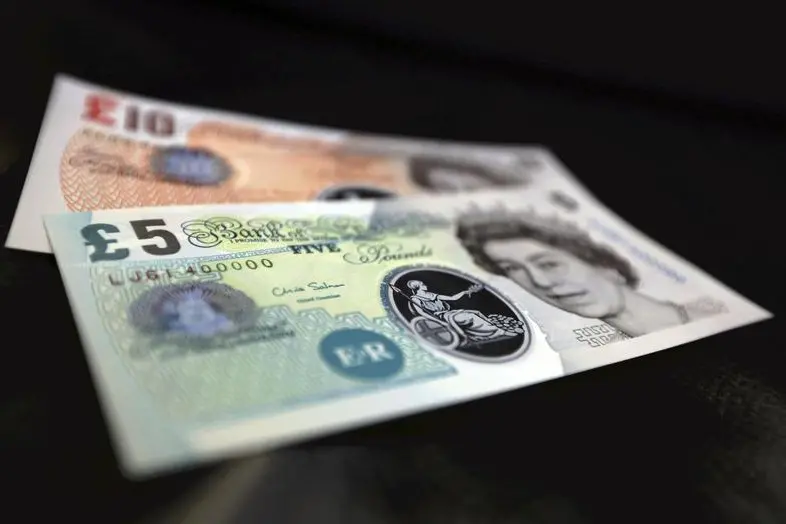PHOTO
LONDON- The British pound fell over 1% to a more than five-month low on Thursday as Britain and the EU prepared for emergency talks on a future trade deal.
The pound was last down at 91.78 pence against the euro , its lowest since March 26. Versus the U.S. dollar it also fell by 0.6% at $1.2931, nearing the six-week low of $1.2885 it reached the day before.
Thursday's meeting is in addition to the ongoing negotiations this week. The EU could take legal action under the treaty with Britain if emergency talks on Thursday do not reassure Brussels sufficiently that a proposed new British law will not break agreed commitments.
"There's an increased risk of a no-deal (Br)exit," said Simon Harvey, forex analyst at Monex Europe, a UK broker.
"This new bill has not only introduced the risk of falling back on WTO (World Trade Organization) terms, but also the possibility of a hard border" between Ireland and Northern Ireland, Harvey said.
The market has turned susbtantially bearish on sterling and the plunge in sterling was "people guessing ahead of the crowd," he said.
By publishing the Internal Market Bill on Wednesday, Britain took steps to overturn the Brexit divorce deal signed with the EU last year, pushing ahead with its plan to act outside international law.
Investors tried to understand whether the bill to undercut the Brexit divorce deal would cause the EU to leave the negotiating table, but so far the EU stuck to its guns to continue the talks. EU negotiators are trying to gauge how to deal with London.
Goldman Sachs analysts think the British government's moves are intended to extract "concessions on the UK’s ability to diverge from EU regulatory standards while still enjoying zero-tariff/zero-quota access to EU markets" after the transition period ends this year.
Britain left the EU in January, but is now in a transition period during which it has access to EU markets. It was given a year to agree a new trade deal with the EU.
Goldman Sachs expects "the perceived probability of a breakdown in negotiations to escalate over the coming weeks," but its base case remains a "thin" free trade agreement that steers both sides back from the brink.
Overnight sterling implied volatility rose to 13%, its highest since March 26, when markets were in turmoil because of the coronavirus pandemic. Higher implied vols suggests traders are adding options contracts to protect against unexpected moves in the currency.
Implied volatility gauges for other maturities were also elevated, including the six-month options contracts - comprising the end of the transition period - which stood close to its highest since mid-May.
Latest data from the Commodity Futures Trading Commission showed that hedge funds were slightly long the British currency, which could open the door to more declines if those longs were to be unwound.
"At 1.30 sterling is hugely overvalued and while a lot of that is down to the dollar, this negative turn in brexit negotiations is coming also when UK economic data seems to be losing momentum, there is a rise in new COVID cases and tightening of social gathering guidelines," said Seema Shah, chief strategist at Principal Global Investors.
"Finally there is a cabinet that's already thinking of fiscal tightening," Shah said.
(Reporting by Olga Cotaga; Additional reporting by Sujata Rao; Editing by Angus MacSwan and Janet Lawrence) ((olga.cotaga@thomsonreuters.com;))





















